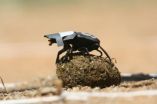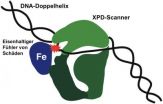(Press-News.org) This press release is available in French.
Montreal, January 22, 2013 – The cab driver who was an engineer in his home country, the gas station attendant who used to teach physics, the cashier who trained as a pediatrician. Time and again, new immigrants find themselves in jobs for which their level of education outstrips the requirements, meaning a major loss for the economy.
In a paper recently published in the peer-reviewed open-access journal ISRN Economics, Mesbah Sharaf, an assistant professor in Concordia's Department of Economics, found that two-thirds of recent immigrants to Canada possess more education than their jobs call for. But time and effort can shift the numbers. Sharaf's results show that increased proficiency in English or French, combined with post-immigration education and training can significantly increase the likelihood of landing a job that matches one's qualifications.
Using data from the most recent Longitudinal Survey of Immigrants to Canada, Sharaf measured job-education mismatch for new Canadians. He found that six months after their arrival, 76.3 per cent of men and 71.8 per cent of women have more education than their jobs require. Four years after arrival, the figures improve slightly, with 70.4 per cent of men and 64.6 of women over-educated for their jobs. Compare that with Canadian-born workers, who are around 44 per cent over-qualified for the work they do.
Sharaf explains that, "when searching for a job that matches their qualifications, new immigrants face barriers like lack of work experience and having few contacts in the Canadian labour market. They often don't possess the necessary language skills and lack the social networks that could help in finding better jobs."
Other reasons for the job-education mismatch include lack of recognition for foreign experience and credentials, costly accreditation and licensing requirements by professional associations, and poor source-country schooling quality. "As a result, many immigrants are left with no option other than survival jobs," says Sharaf.
But there is reason for hope. Sharaf's research proves that the incidence and intensity of over-education decrease with the length of an immigrant's stay in Canada. "Alongside a social network that naturally widens as one spends more time in the new country, post-immigration education and training increase the likelihood of employment while reducing the probability of being over-educated," Sharaf explains.
The Canadian government would do well to invest in that training because the over-education problem translates to a loss of up to $5 billion a year for the economy, as estimated by the Conference Board of Canada. That's because overeducated workers suffer from high job dissatisfaction, increased absenteeism, low productivity, poor health, job instability and lower wages.
"This is a real problem for a country facing an ever-expanding deficit. It could really help the economy if the government directed resources toward closing the job-education gap for recent immigrants," says Sharaf. "I hope that my findings will inspire new policies that will help immigrants integrate into the labour market."
### Related links:
Concordia's Department of Economics http://economics.concordia.ca/
Mesbah Sharaf's Research @ Concordia profile page http://www.concordia.ca/explore/#!/profile/6171/
Cited study: "Mesbah Fathy Sharaf (2013). Job-Education Mismatch and Its Impact on the Earnings of Immigrants: Evidence from Recent Arrivals to Canada, ISRN Economics, vol 2013" http://www.hindawi.com/isrn/economics/2013/452358/
Media contact:
Cléa Desjardins
Senior Advisor, External Communications
Concordia University
Tel: 514-848-2424, ext. 5068
Cell: 514-909-2999
e-mail: clea.desjardins@concordia.ca
Web: concordia.ca/media-relations
Twitter: twitter.com/CleaDesjardins
Immigrants: Highly educated, underpaid
Job-education mismatch hurts earnings of new Canadians, Concordia research proves
2013-01-24
ELSE PRESS RELEASES FROM THIS DATE:
Pavlov's rats? Rodents trained to link rewards to visual cues
2013-01-24
In experiments on rats outfitted with tiny goggles, scientists say they have learned that the brain's initial vision processing center not only relays visual stimuli, but also can "learn" time intervals and create specifically timed expectations of future rewards. The research, by a team at the Johns Hopkins University School of Medicine and the Massachusetts Institute of Technology, sheds new light on learning and memory-making, the investigators say, and could help explain why people with Alzheimer's disease have trouble remembering recent events.
Results of the study, ...
Smokers who quit before age 40 have lifespan almost as long as people who never smoked
2013-01-24
TORONTO, Jan. 23, 2013—Smokers who quit when they are young adults can live almost as long as people who never smoked, groundbreaking new research has found.
Smoking cuts at least 10 years off a person's lifespan. But a comprehensive analysis of health and death records in the United States found that people who quit smoking before they turn 40 regain almost all of those lost years.
"Quitting smoking before age 40, and preferably well before 40, gives back almost all of the decade of lost life from continued smoking," said Dr. Prabhat Jha, head of the Centre for Global ...
Estrogen fights urinary infection in mouse study
2013-01-24
Estrogen levels drop dramatically in menopause, a time when the risk of urinary tract infections increases significantly.
Researchers at Washington University School of Medicine in St. Louis have found new evidence in mice that the two phenomena are connected by more than just timing. If further research confirms these links, boosting estrogen levels may get a second look as an approach for reducing urinary infections in menopausal women.
"Scientists tested estrogen as a treatment for post-menopausal women with urinary tract infections in the 1990s, but the results ...
Right target, but missing the bulls-eye for Alzheimer's
2013-01-24
Alzheimer's disease is the most common cause of late-life dementia. The disorder is thought to be caused by a protein known as amyloid-beta, or Abeta, which clumps together in the brain, forming plaques that are thought to destroy neurons. This destruction starts early, too, and can presage clinical signs of the disease by up to 20 years.
For decades now, researchers have been trying, with limited success, to develop drugs that prevent this clumping. Such drugs require a "target" — a structure they can bind to, thereby preventing the toxic actions of Abeta.
Now, ...
Discovery of new class of damage-prone DNA regions could lead to better cancer treatments
2013-01-24
Cancer is thought to arise from DNA damage at fragile sites in the genome. A study published by Cell Press on January 24th in the journal Cell reveals a new class of fragile sites that contributes to DNA alterations in a type of blood cancer called B cell lymphoma The findings could lead to the development of more effective treatments for B cell lymphoma and potentially other cancers.
"This study describes an underlying mechanism of genome instability in B cell lymphoma that could not be previously explained," says senior study author André Nussenzweig of the National ...
Dung beetles follow the Milky Way
2013-01-24
You might expect dung beetles to keep their "noses to the ground," but they are actually incredibly attuned to the sky. A report published online on January 24 in Current Biology, a Cell Press publication, shows that even on the darkest of nights, African ball-rolling insects are guided by the soft glow of the Milky Way.
While birds and humans are known to navigate by the stars, the discovery is the first convincing evidence for such abilities in insects, the researchers say. It is also the first known example of any animal getting around by the Milky Way as opposed to ...
Dung beetles use stars for orientation
2013-01-24
An insect with a tiny brain and minimal computing power has become the first animal proven to use the Milky Way for orientation. Scientists from South Africa and Sweden have published findings showing the link between dung beetles and the spray of stars which comprises our galaxy.
Although their eyes are too weak to distinguish individual constellations, dung beetles use the gradient of light to dark provided by the Milky Way to ensure they keep rolling their balls in a straight line and don't circle back to competitors at the dung pile.
"The dung beetles don't care which ...
Discovering the secrets of tumor growth
2013-01-24
Scientists at the University of Copenhagen's Center for Healthy Ageing have identified a compound that blocks the expression of a protein without which certain tumours cannot grow. This compound has the potential as an anticancer agent according to the research published in the journal CHBIOL: Chemistry and Biology this week.
The BLM protein is also known to be important in maintaining stability in cells when they multiply, thus preventing cancer. However, certain types of tumour need BLM to grow. This is typical of osteosarcomas - aggressive malignant tumours often seen ...
A scanner for hereditary defects
2013-01-24
Our DNA is constantly under attack from UV light, toxins and metabolic processes. Proteins and enzymes continually repair the damaged DNA. Unrecognized and therefore unrepaired damage to the genetic material, however, accelerates aging and causes cancer and genetic disorders. A team headed by veterinary pharmacologist and toxicologist Hanspeter Nägeli has now discovered that the protein XPD plays a key role in locating damaged DNA.
XPD protein as scanner
Genetic information is stored on approximately three billion base pairs of adenine/thymine or cytosine/guanine in ...
Research ties lightning to onset of headache, migraines
2013-01-24
CINCINNATI—University of Cincinnati (UC) researchers have found that lightning may affect the onset of headache and migraines.
These results, published in the Jan. 24, 2013 online edition of the journal Cephalalgia, are the first tying lightning to headache and could help chronic sufferers more efficiently anticipate headache and migraine arrival and begin preventive treatment immediately.
Geoffrey Martin, fourth-year medical student at UC, and his father Vincent Martin, MD, professor in the division of general internal medicine, UC Health physician and headache expert, ...
LAST 30 PRESS RELEASES:
GLP-1 drugs associated with reduced need for emergency care for migraine
New knowledge on heritability paves the way for better treatment of people with chronic inflammatory bowel disease
Under the Lens: Microbiologists Nicola Holden and Gil Domingue weigh in on the raw milk debate
Science reveals why you can’t resist a snack – even when you’re full
Kidney cancer study finds belzutifan plus pembrolizumab post-surgery helps patients at high risk for relapse stay cancer-free longer
Alkali cation effects in electrochemical carbon dioxide reduction
Test platforms for charging wireless cars now fit on a bench
$3 million NIH grant funds national study of Medicare Advantage’s benefit expansion into social supports
Amplified Sciences achieves CAP accreditation for cutting-edge diagnostic lab
Fred Hutch announces 12 recipients of the annual Harold M. Weintraub Graduate Student Award
Native forest litter helps rebuild soil life in post-mining landscapes
Mountain soils in arid regions may emit more greenhouse gas as climate shifts, new study finds
Pairing biochar with other soil amendments could unlock stronger gains in soil health
Why do we get a skip in our step when we’re happy? Thank dopamine
UC Irvine scientists uncover cellular mechanism behind muscle repair
Platform to map living brain noninvasively takes next big step
Stress-testing the Cascadia Subduction Zone reveals variability that could impact how earthquakes spread
We may be underestimating the true carbon cost of northern wildfires
Blood test predicts which bladder cancer patients may safely skip surgery
Kennesaw State's Vijay Anand honored as National Academy of Inventors Senior Member
Recovery from whaling reveals the role of age in Humpback reproduction
Can the canny tick help prevent disease like MS and cancer?
Newcomer children show lower rates of emergency department use for non‑urgent conditions, study finds
Cognitive and neuropsychiatric function in former American football players
From trash to climate tech: rubber gloves find new life as carbon capturers materials
A step towards needed treatments for hantaviruses in new molecular map
Boys are more motivated, while girls are more compassionate?
Study identifies opposing roles for IL6 and IL6R in long-term mortality
AI accurately spots medical disorder from privacy-conscious hand images
Transient Pauli blocking for broadband ultrafast optical switching
[Press-News.org] Immigrants: Highly educated, underpaidJob-education mismatch hurts earnings of new Canadians, Concordia research proves





